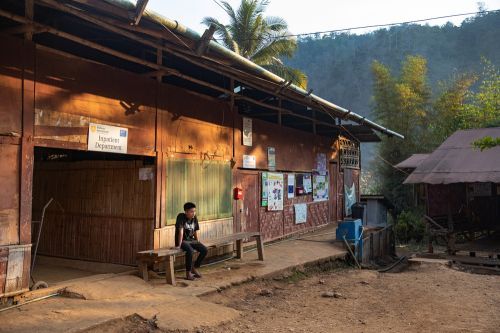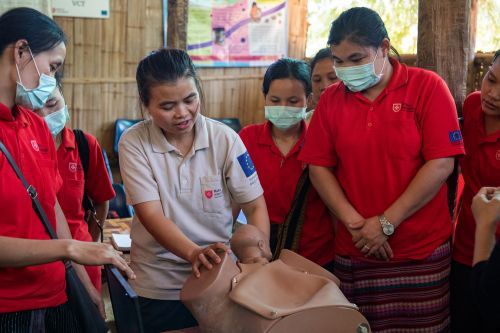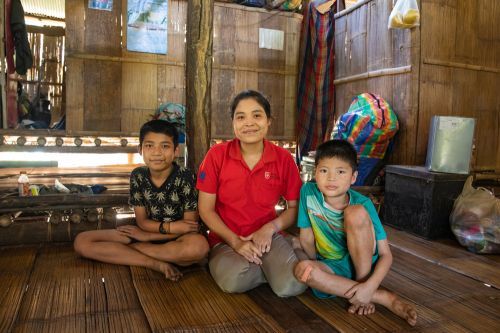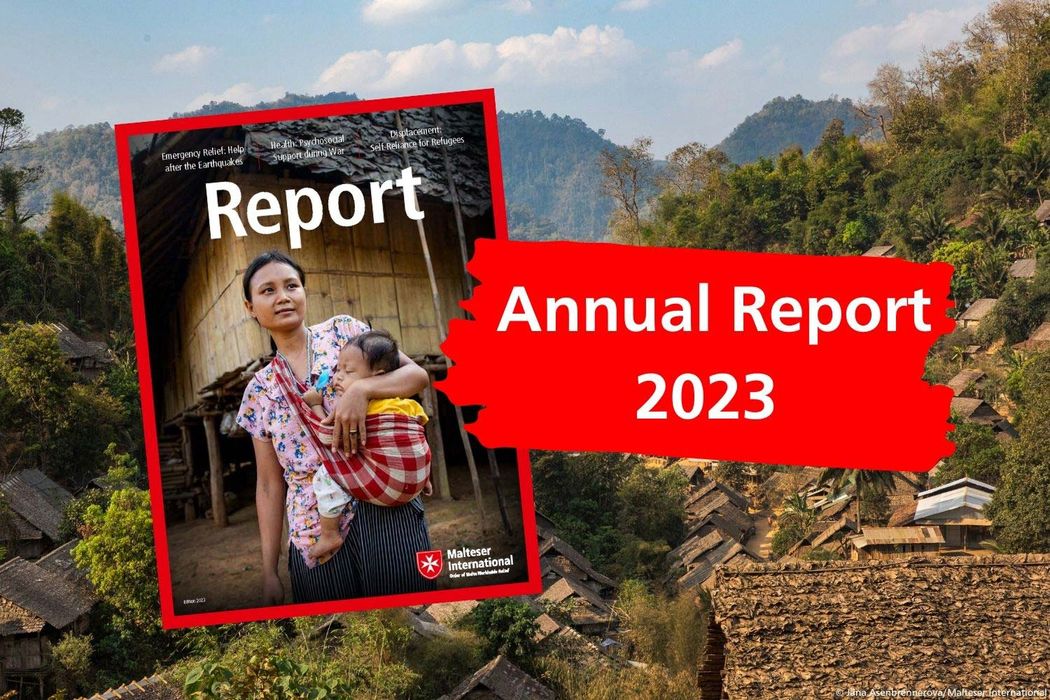
New prospects for Ray Mo and Naw Eh Say Paw

For as long as he can remember, Ray Mo, 46, was interested in working in the medical field. He now fulfills his vision to help his community as one of currently over 300 camp-based Community Volunteers working for Malteser International (MI) in Thailand. Like hundreds of other refugees, he had received training by MI as part of a comprehensive project intended to increase the self-sufficiency of the camp residents, and which saw its 30-year anniversary in 2023.
The two large refugee camps Mae Ra Ma Luang and Mae La Oon are situated close to the Thai-Myanmar border. Around 20,000 refugees from Myanmar live here, some of them already in the third generation, with many children knowing no other life. In its work in both camps, MI puts a strong emphasis on involving the residents in the planning, implementation, and monitoring of support efforts in the areas of health and WASH (water, sanitation, hygiene), while limiting MI’s own role as much as possible to training, supervision, and mentoring. MI also coordinates its work closely with the camp committee, an administrative body that consists of elected refugee volunteers. In this way, MI ensures that the residents are informed about and participate in programs, can give feedback, and are involved in decision-making.
Diverse training opportunities

To foster the refugees’ autonomy, the training component is at the heart of the project. Ray Mo already had seven years’ experience working at a Myanmar clinic when he arrived in Mae La Oon in 2008. More than once, however, he seized the opportunity to broaden his skills via training offered by MI, moving from working in the pharmacy to being a nurse, then a medic, assisting midwives and eventually arriving at his current position as hospital manager. In one of the basic healthcare facilities supported by MI in each camp, trained Community Volunteers like him have the option to work as a medic, nurse, midwife, laboratory or pharmacy worker.
Through its preventive healthcare efforts, MI offers, for example, skills training for Water and Sanitation workers, Community Health Workers, Nutrition Workers, and Mother and Child Health Workers. These work primarily in the community, visiting households or taking care of water facilities. One of them is Community Health Worker Naw Eh Say Paw, 32, in Mae Ra Ma Luang. She is responsible for 60 households that she visits regularly to raise awareness about health and hygiene issues like sanitation, communicable diseases, and antenatal care as well as educating teenagers about menstrual hygiene. She says she enjoys the educational and social aspects of her work, and is happy that her training enabled her to communicate better: “People follow my advice, and when I call meetings, they attend them.”
Creating meaning and perspectives

Their work is important to the Community Volunteers in more ways than one. The financial incentive they receive helps them support their families. But Naw Eh Say Paw and Ray Mo are also happy that the training allows them to perform a meaningful job, support others and have a perspective in life – also regarding a possible return to Myanmar one day. For the future, especially that of their children, returning to their home country or resettling to another one would be their greatest wish.
(July 2024)
Our Annual Report 2023
You can also find the stories of Ray Mo and Naw Eh Say Paw in our Annual Report 2023 and learn more about our work in Thailand and around the world.









